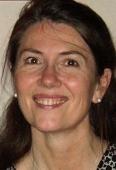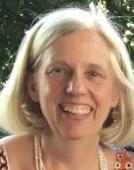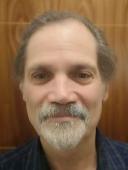Your Hosts




Where & When
A confirmation with the zoom link will be sent to registered participants the week of the event.
Live attendance required - no recording.
Wednesday, March 10, 2021 from 12:00 pm to 2:00 pm Eastern Time
Live attendance required - no recording.
Times worldwide: convert to your time zone
The TIFI Membership Committee is pleased to offer Therapists’ Circles, a Roundtable series designed especially for members who work with clients in therapeutic settings. If you are not a member, please join at this link and then return to this page to register.
Regardless of modality, we therapists hold in common the ethical and professional accountability and responsibility for our clients’ welfare and growth. It is with this understanding that we come together to explore both the challenges of our work and the opportunities that arise through bringing a Focusing orientation to our practices. These conversations are not intended to be professional supervision sessions, but rather an opportunity to share ideas and experiences with like-minded professionals.
In his seminal work, “The Client’s Client: The Edge of Awareness” (1984), Gendlin addresses the question, “What is that, in the client, from which change-steps come?” The “that” is the “unclear’ edge”, a “sense of more than one says and knows”, for which he coined the term the “felt sense”. In Gendlin’s thinking, the therapist’s job is to help the client to enter into a client-centered relationship between her “usual self” and her felt sense. The felt sense is, therefore, “The Client’s Client.”
In this foundational article, Gendlin articulates the many ways in which therapists can help their clients to be with their own felt senses in a way that brings positive therapeutic change. As experienced Focusing-oriented therapists, we find much confirmation of our way of practice in this article. Many of Gendlin’s words are like precious gems which have guided our therapeutic practices. Yet there are also hard to grasp passages of Gendlin’s writing that are more challenging to fully understand and put into practice.
In preparation for this Therapists’ Circle, we invite you to reread “The Client’s Client” and bring your favorite gems from this article to the Roundtable so that we can all consider their implications for our work as therapists. We also invite you to identify the parts of his writing that remain unclear, mysterious, or difficult for you. (Many people find Section II of his article falls into this category.) Together, in both large and small groups, we will explore this article to expand one another’s understanding of how this work can enrich and refine our practices.
For instance, questions we might explore together are:
- Which parts of the article most resonate with you now? What about these gems hold most meaning for you?
- Which parts of the article do you find most helpful as you work with your clients to make contact and work with their inner client or felt sense?
- Which aspects of the article do you find most difficult to understand or apply in practice? What would you want to understand more fully or apply more consistently?
Other issues and ideas may emerge from our mutual exploration during the Circle.
Through this exploration and sharing of experiences from our own professional practices, we hope that participants will glean insights and practical strategies for increasing their therapeutic efficacy.
Advance preparation for this Circle:
Please read or reread Gendlin’s article, “The Client’s Client: The Edge of Awareness” (1984) and highlight any sections that you find especially helpful to your practice and/or any sections that you find difficult, unclear or challenging to apply in your work with your clients. You can access the article in the Gendlin Online Library at this link.
Who might be particularly interested in attending this Circle?
Therapists’ Circles are intended to serve the needs and interests of a specialized subset of our membership community who use or have used therapeutic modalities deepened by Focusing. Current and former therapists are welcome, including psychotherapists, counselors, coaches, somatic practitioners, spiritual directors, occupational or physical therapists, nurses and the like. If you have an area of interest, curiosity or passion that you would like to explore in a future Circle, please let us know.
CONNECTION>CONVERSATION>COMMUNITY
What to expect from Therapist Circles: Each Therapist Circle is designed to promote informal peer-to-peer conversation. Rather than acting as expert presenters, the Hosts will serve as conversation moderators to encourage sharing and exploration of the topics from the participants’ own perspectives. All participants’ sharings are welcome and valuable, no matter what level of experience or knowledge you have on the topic. To preserve the nature of informal conversation, the program will be offered live only and no recordings will be available. Registration is limited and on a first-come, first served basis. Participants are encouraged to create follow up opportunities for connection among themselves after the Roundtable.
About your hosts:
Mary Anne Schleinich, MPS, BScOT is a counselling body psychotherapist in private practice in Calgary and online. She is certified with the Canadian Counselling and Psychotherapy Association and The International Focusing Institute as a Focusing Oriented Therapist. She teaches Focusing and has worked with pain, anxiety and trauma for 20 years.
Julie Ramsey, LICSW, FOT, is a psychotherapist in private practice in Wellesley, MA. She works with adolescents and adults in individual and couples therapy. She also teaches Focusing in small groups and enjoys bringing Focusing to all aspects of her work and life. She is a Coordinator-in-Training.
Steve Moscovitch MSW is a therapist in Winnipeg, Manitoba, Canada. He has been a Certified Focusing Trainer since 2002. He has integrated Focusing and a Focusing orientation into his work in individual, couple and family therapy for 20 years of his 38-year career. Other significant recent trainings are Emotion Focused Couple Therapy and Internal Family Systems.
Registration Information and Price
Registration Closes: Tuesday March 9 at 12:00 pm (noon), or when the Roundtable is full, whichever is sooner.
Zoom: This conversation will take place on an online video conference service called Zoom. Please attend by computer so that we can have your video presence as well as your audio. Calling in by phone is also possible but not preferred.
Price: The co-hosts are volunteering their time in order that this program may be brought to members of TIFI at no charge.
PLEASE NOTE: When you register, you will receive an email indicating your registration was processed. If your dues are current, we will complete your registration and email instructions to join the event within a few days of the start date. If you know your dues are not current, or if you are not yet a member, please go to the membership page to pay your dues or join and then return to this page to register. Membership page: http://focusing.org/membership
